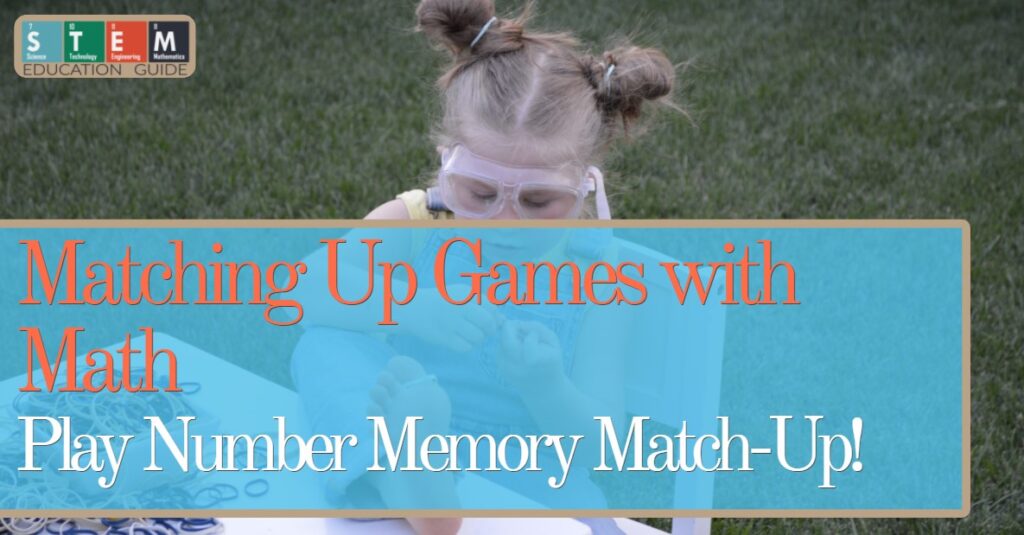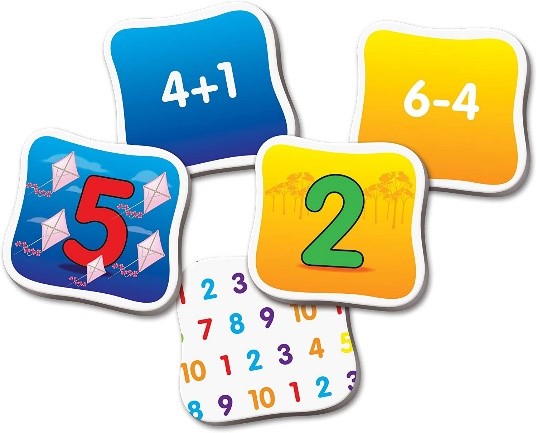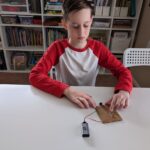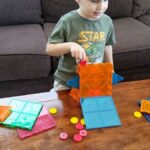Matching up games with math will significantly boost your child’s math abilities when they get to school.
From a young age, kids are usually more eager and more curious about stuff. But they can find math a bit plain and boring. However, it doesn’t have to be like that. It’s best to introduce mathematics in a fun way as early as possible.
It’s also fun to play these math games together as a family. Plus, you get to educate your kid’s in new ways of handling math that are easy and fun. Below are some number memory match up games you can try out with your children and boost their math skills. Read on to find out more.
If you’re looking for more fun math games, check out our article, 10 Exciting Mathematics Review Games for Kids to Skyrocket New Math Skills On-The-Go.
Table of Contents
1. The Learning Journey: Match it! Memory – Mathematics
Not feeling crafty? This is a game you can buy online, and it is sure to be a hit for your child. This Match It! Memory Game helps teach early math facts, addition, and subtraction with 30 matching pairs. It allows your child to gain beneficial early math skills like number recognition while improving their memory with practice.
It is also a game that can help improve your child’s focus and encourage them to stay on the task at hand. To play, simply turn all the cards facedown on the table and then play it as you would any other matching game.
Turn around the problem cards (6-4) and then turn around the solution cards to find the right answer (2).
If the child matches, they keep the pair. If not, they turn the cards over and wait their turn for another chance. The winner is the one with the most mathematical matches at the end of the game.
2. Throw Balls Into a Bucket
This is a great game to play for all kinds of educational fun. Simply gather a few buckets and some balls. Write a number on a piece of paper and tape it to each bucket. You can number them from 1 to 5, for example.
Once you have all the supplies and you have numbered your buckets, there are several ways this game can be played. It can also be tailored to your child’s age and skill level.
When simply learning numbers, yell out a number 1 through 5 and have your child try to throw the ball into the correctly numbered bucket. This is a good way to get them interested in numbers, and the repetition of the game can help them retain the information.
For older children who are learning addition, you can ask them to throw the ball into the bucket that answers 1+3. Your child will then target bucket number four. Again, this game can be tailored for all skill levels, and the numbers can be whatever you need them to be for the buckets.
Also, make sure to check out our article on STEM activities for kindergartens, Kindergarten STEM Activities – Easy & Fun Setup.
3. Popsicle Stick Matching Game
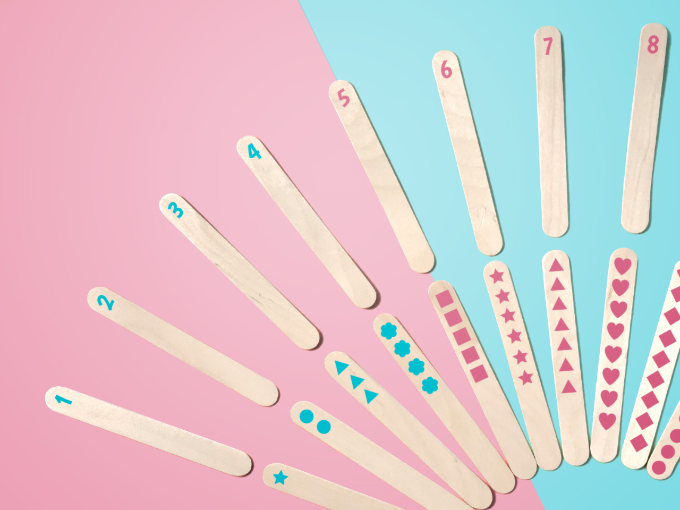
How is your child at identifying their numbers between one and ten? These are the math skills you want your child to develop before heading to kindergarten. Allowing them the opportunity to develop their number sense can help build their confidence when it comes to math.
For this Scholastic game, you will need to have 20 craft sticks. Take ten of those craft sticks and write the numbers 1 through 10 on them. The other 10 sticks will have different symbols drawn on them.
For example, the craft stick that goes with number one will have one star drawn on it. Number 2 can have a matching stick with two circles drawn on it, etc.
To set this game up, lay the craft sticks face down in rows of five. The goal is to let your child turn over a numbered craft stick and then find the matching symbol on the other craft stick.
If they turn around two sticks that match, then they keep them. If they do not match, the sticks get turned back over, and the child goes again.
4. Rubber Duck Math Race
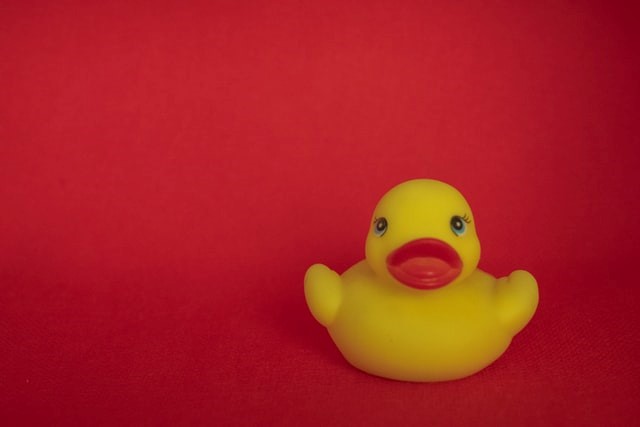
The rubber duck math game is a fun way to get your younger kids to practice counting. In this game, kids lie down tiles and toss dice. They then move their rubber duck the number of times shown on the dice. The player should not exceed the number needed to reach the end.
You can also label each rubber duck with a number and your child will have to match the number they are given to the right rubber duck before taking their turn on their tiles.
This helps them learn how to recognize each number while also strengthening their counting skills.
The duck race is a game best played with two or more children. The winner is the one who reaches the tenth number first. It is a fun and easy math game to set up and is ideal for a preschooler or kindergartener.
5. Monster Memory Game
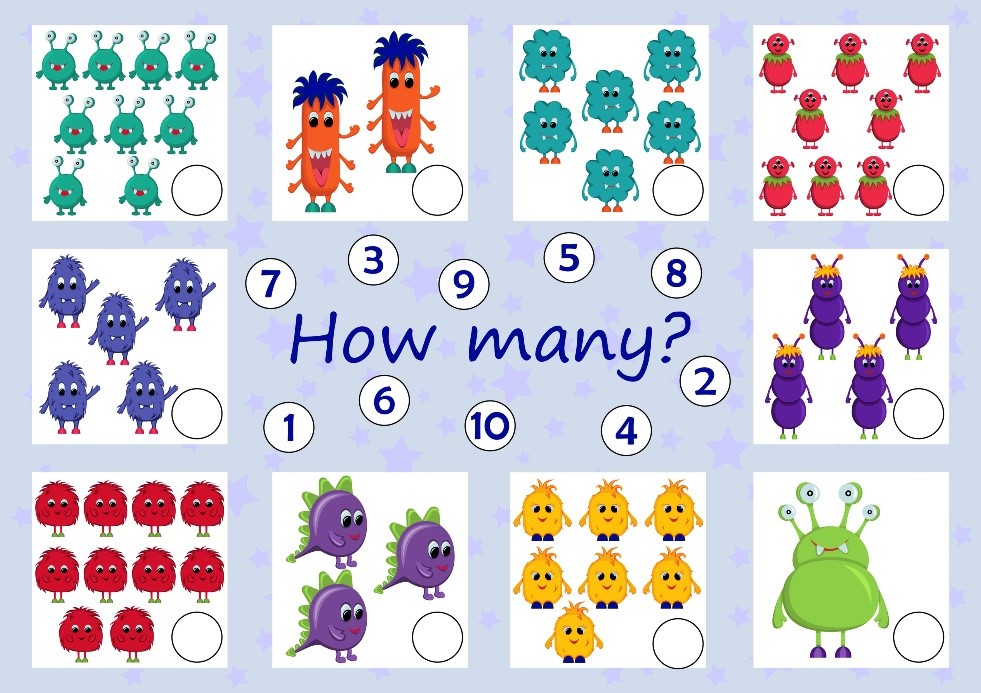
For this game, you would follow the same concept as the popsicle stick game and the memory match up game. Create 10 cards with a different monster on each. Each card should be numbered 1 through 10. On the corresponding card, you will have (x) number of monsters.
For example, your green monster card will have the number 1, and the corresponding card will have just ONE green monster. Your number 2 card will have the number 2 written on it with a corresponding card with two orange monsters with purple haircuts.
Turn all twenty cards around and have your child flip them over, trying to match the number card with the card displaying the correct number of monsters.
Like with the other games, the winner is the one with the most matches. It is a fun way to boost your child’s math skills and uses a fun character that they will remember.
Final Thoughts
No matter which of these play number memory match up games you choose, you will have tons of fun teaching your children basic math skills. When you associate learning with something memorable and something that interests them, it is easier to teach them and easier for them to retain the information.
For more free games (well, you’ll need a deck of cards), check out our article, 10 Fun Math Games You Can Play With Cards.

